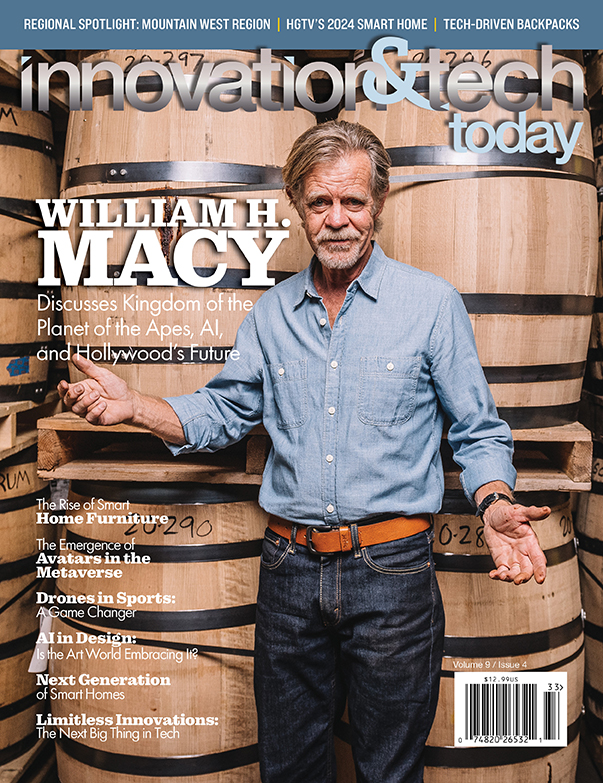While the COVID-19 pandemic has cancelled many events and conferences in the business world, the introduction of a viable vaccine is bringing newfound hope that these and other “normal” activities will be able to resume in the not too distant future.
That means that now is actually a great time to start planning for your brand’s first event. According to Alexy Goldstein, founder of nutritional supplement brand New U Life, implementing a few key strategies during the planning process will make all the difference in making your event a success.
Determine Your Scope and Timing
“Getting the right scope and timing for your first event is even more important in the COVID era,” Goldstein says. “If you’re a small company who relies on local support, you probably shouldn’t plan on renting out a large conference center for a day. Think small — like a one-hour workshop at your business, or possibly a virtual event. Starting small will help you save money and make it much easier to manage the logistics of your first event.”
When planning your brand’s first event, it can be hard to predict just how much enthusiasm your target audience will have. It’s better to have demand that exceeds your attendance capacity, rather than rent a large space that ends up being mostly empty.
As part of this early planning, consider which dates and times will or won’t work for potential attendees. Be mindful of holidays and other events in your area that could compete for your audience’s attention. The scope of the event will also influence how far in advance you should plan it. A multi-day conference will require months of planning, while a hands-on workshop could be planned only a few weeks in advance.
Cater to Your Target Audience
When your brand is hosting an event, its ultimate goal should be to make your company more appealing to your target audience. The event should help create a positive perception of your brand so you can achieve more leads and sales.
“You have to think about the types of events that are most enticing to your customers,” Goldstein advises. “This means providing something of value to them — whether that is useful information, or even just entertainment. A business software provider could host a highly successful entrepreneurship seminar, but that’s hardly the right fit for a landscaping company. Put yourself in your target audience’s shoes so you can select an event that actually appeals to them.”
Consider activities, speakers, or even other business partnerships that would make your event more enticing to your target audience.
Promote Early and Often
“As soon as you’ve internally confirmed the details of your event, you need to start promoting it,” Goldstein says. “The more notice you give your target audience, the more likely they are to put your event on their calendar, rather than already having plans that conflict with it. Don’t just use social media for your promotions. Reach out to local media before and after the event with press releases to gain valuable news coverage that can expand your potential audience even more.”
Of course, your promotional materials can do much more than simply tell your target audience to RSVP. Engaging posts that offer a preview of what’s to come will do a much better job of building anticipation.
As Ana Gotter of AdEspresso recommends, “Show them a look behind the scenes at how you’re setting everything up or getting vendors in order; give them tantalizing glimpses of the food, or talk to people who attended the last event. Explain what you’ll be offering and why it’s the place you need to be, and always put a CTA in the post to check out the event on Facebook.”
Make Sure Your Event Is Fully Branded
“From the moment attendees arrive at your event, they need to be fully aware that your brand is the one behind everything,” Goldstein explains. “Your event can go a long way in selling who you are as a company, so the brand itself needs to be extremely visible. Logos, colors, imagery, and more need to showcase your brand so that all elements of the event create a cohesive experience that serves as a direct reflection of your business.”
Quite often, this branding extends to activities and presenters. Whether event attendees are using your products in a hands-on activity, or a representative from your company is the moderator for a panel, your company needs to have direct involvement throughout.
When the brand is fully integrated with the event, it becomes more tangible and real to attendees. Even something simple like giving away a “swag bag” full of branded materials will help keep your brand top of mind in the days and weeks to come.
After Your First Success, It Gets Easier …
Even though organizing events requires a lot of work, they can generate a lot of enthusiasm for your company and its products or services.
After your first event, you’ve laid the groundwork (and gained the experience necessary) to host additional events in the future. As you make brand events a part of your overall marketing strategy, you will be better positioned to build a passionate, loyal following that leads to lasting growth.










